In the midst of the COVID-19 crisis, America Forward Coalition organizations are working tirelessly to connect students, families, educators, workers, elected leaders, and advocates with critical tools, information, and resources. Every week, we’ll be highlighting a few examples of the vitally important work being done by the members of the America Forward Coalition. If your organization has resources, an announcement, or a story that you would like to see included, please send it to america_forward@newprofit.org.
Teach for America
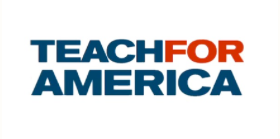 Teach for America has a vast network of corps members, alumni, and staff — 2,000 of whom have joined the TFA Slack space, set up to “share resources and collaborate with one another on the challenges at hand,” during the COVID-19 crisis. In addition, TFA has established a COVID-19 Education Resource Hub, filled with relevant and timely information for educators, families, and students on combatting and mitigating the consequences of the pandemic. TFA is continuing to show up for students, making programming accessible online and offering health, financial, and educational supports.
Teach for America has a vast network of corps members, alumni, and staff — 2,000 of whom have joined the TFA Slack space, set up to “share resources and collaborate with one another on the challenges at hand,” during the COVID-19 crisis. In addition, TFA has established a COVID-19 Education Resource Hub, filled with relevant and timely information for educators, families, and students on combatting and mitigating the consequences of the pandemic. TFA is continuing to show up for students, making programming accessible online and offering health, financial, and educational supports.
The Wyman Center
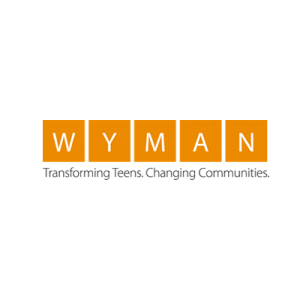 Despite the COVID-19 crisis, The Wyman Center has continued their work, providing frontline services to the more than 23,000 teens it serves across the country. The Center understands that their critical work cannot stop because of the pandemic; in fact, teens need their programs now more than ever. Not only have they continued their mentoring and coaching programs, they have also been helping to “provide food, educational supplies, and making referrals for housing, employment, and mental health supports,” to those impacted by the pandemic.
Despite the COVID-19 crisis, The Wyman Center has continued their work, providing frontline services to the more than 23,000 teens it serves across the country. The Center understands that their critical work cannot stop because of the pandemic; in fact, teens need their programs now more than ever. Not only have they continued their mentoring and coaching programs, they have also been helping to “provide food, educational supplies, and making referrals for housing, employment, and mental health supports,” to those impacted by the pandemic.
The Opportunity Network (OppNet)
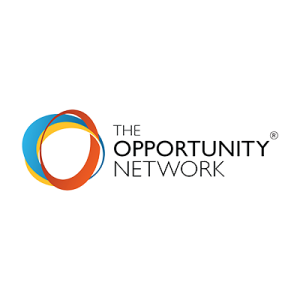 In response to the COVID-19 crisis, OppNet quickly adapted their services to meet the moment, transitioning their programming online for the approximately 1,000 students they serve, across their 6-year OppNet Fellows program. In addition to maintaining their usual lessons, workshops, counseling, and more, OppNet is also reworking skill- and career-building internship opportunities for a virtual context this summer, and have expanded services to offer health, financial, and technological support to the young people they serve.
In response to the COVID-19 crisis, OppNet quickly adapted their services to meet the moment, transitioning their programming online for the approximately 1,000 students they serve, across their 6-year OppNet Fellows program. In addition to maintaining their usual lessons, workshops, counseling, and more, OppNet is also reworking skill- and career-building internship opportunities for a virtual context this summer, and have expanded services to offer health, financial, and technological support to the young people they serve.
Social Finance
 Social Finance has been at the forefront of the COVID-19 crisis, working to help drive capital and resources to communities most impacted by the consequences of the pandemic. Social Finance has been assisting state and local governments to distribute federal relief funds in a way that emphasizes evidenced-based solutions, and have established a Rapid Response Network to supply additional bandwidth, “with the goal of delivering fast, customized, digestible research and analysis to guide public leaders making time-sensitive decisions,” in order to support an equitable recovery and build long-term resilience.
Social Finance has been at the forefront of the COVID-19 crisis, working to help drive capital and resources to communities most impacted by the consequences of the pandemic. Social Finance has been assisting state and local governments to distribute federal relief funds in a way that emphasizes evidenced-based solutions, and have established a Rapid Response Network to supply additional bandwidth, “with the goal of delivering fast, customized, digestible research and analysis to guide public leaders making time-sensitive decisions,” in order to support an equitable recovery and build long-term resilience.
PowerMyLearning
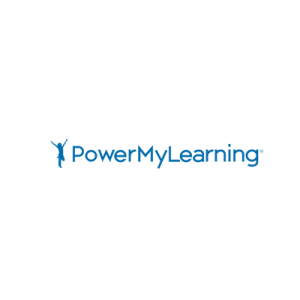 PowerMyLearning’s technology driven approach to education has only become more pertinent during the pandemic. In an effort to continue to serve all communities that have been impacted by COVID-19, PowerMyLearning is offering their Family Playlist program for free to schools and families across the country, through August of this year. The Playlists “are multilingual, mobile-friendly homework assignments that have students teach what they are learning to a family partner at home—a strategy that strengthens students’ understanding and social-emotional learning (SEL) skills.”
PowerMyLearning’s technology driven approach to education has only become more pertinent during the pandemic. In an effort to continue to serve all communities that have been impacted by COVID-19, PowerMyLearning is offering their Family Playlist program for free to schools and families across the country, through August of this year. The Playlists “are multilingual, mobile-friendly homework assignments that have students teach what they are learning to a family partner at home—a strategy that strengthens students’ understanding and social-emotional learning (SEL) skills.”
Peer Health Exchange (PHE)
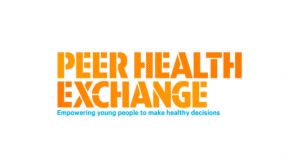 Like all education, health education remains essential and applicable despite the transition to distance learning for schools around the country. To ensure young people are getting the information they need when it comes to their mental, physical, and sexual health, PHE created an online portal, “Let’s Talk,” featuring various health resources, an anonymous chat to ask health-related questions, stories from other young people, and more. Now more than ever, it is vital that young people — especially those most at-risk — have access to critical resources necessary for navigating their own health.
Like all education, health education remains essential and applicable despite the transition to distance learning for schools around the country. To ensure young people are getting the information they need when it comes to their mental, physical, and sexual health, PHE created an online portal, “Let’s Talk,” featuring various health resources, an anonymous chat to ask health-related questions, stories from other young people, and more. Now more than ever, it is vital that young people — especially those most at-risk — have access to critical resources necessary for navigating their own health.
Peace First
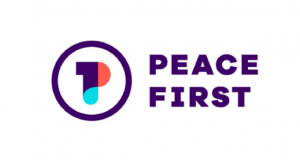 Peace First “views young people as natural problem solvers and creative thinkers” — and they’ve responded to the COVID-19 crisis accordingly. In an effort to support young people working to address and find solutions to recover from the consequences of COVID-19 around the world, Peace First initiated a rapid response grant program, open to young people ages 13-25 who are leading projects to help those most impacted by the pandemic.
Peace First “views young people as natural problem solvers and creative thinkers” — and they’ve responded to the COVID-19 crisis accordingly. In an effort to support young people working to address and find solutions to recover from the consequences of COVID-19 around the world, Peace First initiated a rapid response grant program, open to young people ages 13-25 who are leading projects to help those most impacted by the pandemic.
Leave a Reply
You must be logged in to post a comment.